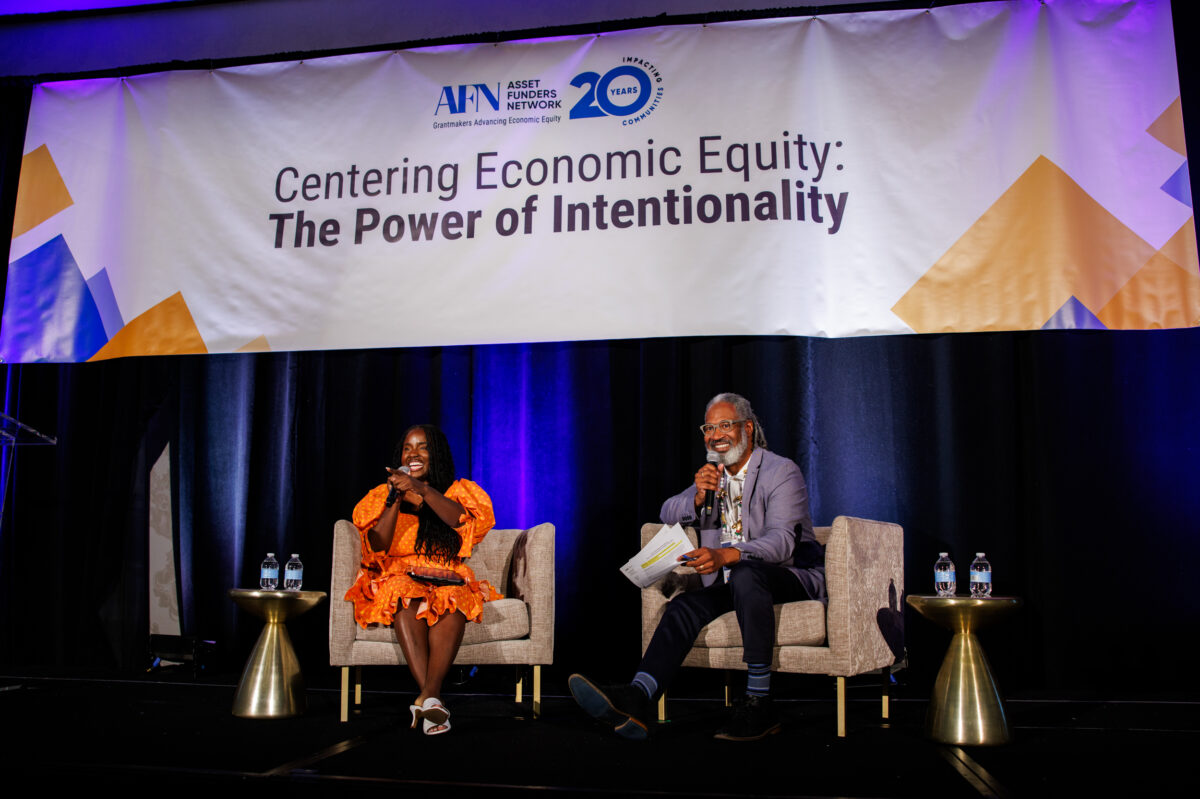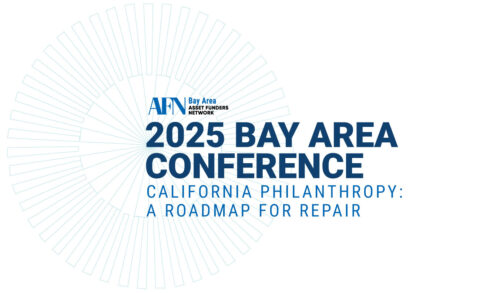This blog is a part of a year-long series called “Roots to Horizons” commemorating AFN’s 20 years in the nonprofit sector.
For over 20 years, AFN has been at the forefront of philanthropy’s quest for systemic change, guided by the steady hand of data. This commitment to evidence-based approaches has been a hallmark of AFN’s learning and doing table, shaping its collective efforts to advance equitable wealth building and economic mobility.
During this year’s AFN biennial conference, award-winning researcher, speaker, and writer Anna Gifty Opoku-Agyeman challenged attendees to reflect on where and how data will be sourced in the years to come. Opoku-Agyeman is the publisher of the critically acclaimed collection, The Black Agenda: Bold Solutions for a Broken System, a series of essays featuring Black scholars and experts across economics, education, health, climate, criminal justice, and technology. The book outlines realistic solutions toward a policy-oriented approach to the fight for racial justice in America.

Photo credit: Ashley Lorraine, Creative Vibe LLC
A portion of Opoku-Agyeman’s research aims to identify and intervene in workplace discrimination patterns – particularly in academia. During our closing plenary, Opoku-Agyeman spoke about the inherent biases in higher education and the lack of funding opportunities for researchers and subject matter experts who happen to be people of color. Her powerful words encouraged grantmakers to think beyond only providing financial resources to institutions and instead challenged funders to become transformational leaders for systemic change in the following ways:
Systematically address the lack of women of color researchers: For decades, women have spoken about the unique barriers they face in pursuing a career in higher education due to cultural, social and financial factors. For women of color, the challenges are exacerbated by the intersectionality of navigating the pitfalls of higher education both as women and as racial minorities in a historically male-dominated realm. For women of color to rise to the top of their field, philanthropy should advocate for colleges and universities to examine how scholarships for graduate degrees are given, patterns in retention and tenure of women researchers of color, and consider reparative strategies that address systemic inequities at their institution.
Close the funding gap for those in the field: While it’s crucial to support researchers of color through traditional methods, such as stipends, honorariums, etc., funders must urgently grapple with the wider impact of the Supreme Court’s 2023 landmark ruling prohibiting the use of race in college admissions. This has led to an increase in abandoning efforts to affirmatively include students of color as well as legislation that directly impacts institutions and programs that use race as a factor when making decisions about who gets faculty positions, scholarships, and awards. Philanthropy can play a unique role in intentionally filling the gaps where schools cannot use affirmative action to ensure inclusive enrollment through targeted support for entrance and retention programs.
Over-index on researchers of color to help answer our strategic questions: In a recent survey, many researchers of color revealed that they often felt their research was undervalued and seen as “less capable or intelligent.” Our unconscious biases in philanthropy can lead us to fund subject matter experts who utilize certain criteria as the “right” way to solve some of our most pressing issues. How do we shift our attitudes as funders to affirm lived experiences, perspectives, and emotions as equally valid and important alongside aggregated empirical research?
Go beyond research to engage the next generation of leaders:Opoku-Agyeman noted that recent Black doctoral recipients are more likely to be first-generation (i.e., younger) students who share information and gain knowledge from each other in vastly different ways than their older counterparts. Funders will have to think outside the box and engage the next generation of leaders in ways that are responsive and reflective of their reality to ensure that their voices will be heard.
Looking forward into the next 20 years, AFN continues to be intentional about how we internally and externally can support researchers of color in our work. Through our Realizing Economic Justice platform, we have committed to engage at least 51% people of color to serve as external reviewers, panelists, writers, and advisors across our AFN national and regional publications. Future efforts could include modeling collaborative initiatives such as Yale University’s Alliance for Scholarship, Collaboration, Engagement, Networking and Development (ASCEND) program, which partners with Historically Black Colleges and Universities (HBCUs) to increase opportunities for researchers of color through faculty collaboration grants, research and teaching fellowships.
As we reflect on the learnings from Opoku-Agyeman and other speakers at our 2024 conference, AFN encourages funders to continue intentionally centering economic equity and consider AFN as a key partner in confronting racial bias in asset building, including reframing and restructuring our approach to research and data and sharing any lessons learned with your peers through AFN.




